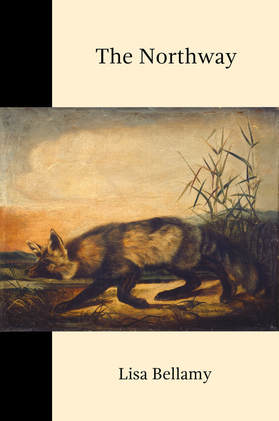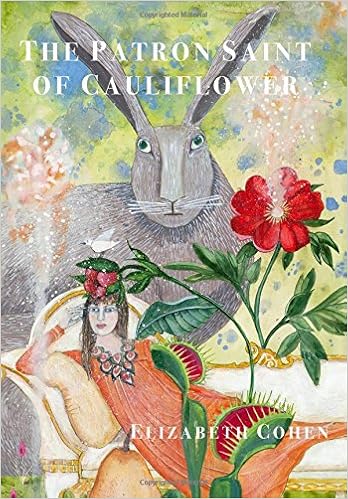 With its keen eye and impeccable phrasing, Lisa Bellamy’s The Northway gives us good-natured laughter, the kind of feeling you get from a Masterpiece Theater series…and it is ever so much more respectable and rewarding than a binge-watch.
With its keen eye and impeccable phrasing, Lisa Bellamy’s The Northway gives us good-natured laughter, the kind of feeling you get from a Masterpiece Theater series…and it is ever so much more respectable and rewarding than a binge-watch.
Tag: poetry
A review of and my heart crumples like a coke can by Ali Whitelock
 The poetry manages to be both pithy and almost hysterically funny, not an easy mix to achieve, but that is how life works: the paradox of what we carry and what we experience in each moment. Whitlock captures this duality perfectly, taking a stand-up comedian’s incision to pretension and human foibles.
The poetry manages to be both pithy and almost hysterically funny, not an easy mix to achieve, but that is how life works: the paradox of what we carry and what we experience in each moment. Whitlock captures this duality perfectly, taking a stand-up comedian’s incision to pretension and human foibles.
A review of In the Measuring by Carol Smallwood
 The aforementioned exuberance comes with the author’s novel treatment of the everyday—those ordinary, mundane tasks and chores we take for granted. Who would think to write a pantoum about dishwashing liquid? Yet Smallwood carries it off, and braids colloquial language with scientific. She assumes a persona the reader can identify with.
The aforementioned exuberance comes with the author’s novel treatment of the everyday—those ordinary, mundane tasks and chores we take for granted. Who would think to write a pantoum about dishwashing liquid? Yet Smallwood carries it off, and braids colloquial language with scientific. She assumes a persona the reader can identify with.
A review of The Patron Saint of Cauliflower by Elizabeth Cohen
 Some secrets when told are betrayals, or suicides, blood spilled or spells cast, for magic and saints governing and protecting, are also secret languages, the ancient rites of certain religions also called “mysteries.” And, so it is in this well-balanced and short collection, an excursion into mysteries, methods of preserving and enduring.
Some secrets when told are betrayals, or suicides, blood spilled or spells cast, for magic and saints governing and protecting, are also secret languages, the ancient rites of certain religions also called “mysteries.” And, so it is in this well-balanced and short collection, an excursion into mysteries, methods of preserving and enduring.
A review of Go because I Love you by Jared Harél
 We may not often be able to control the trajectory of our choices, but we do have the option to recognize them responsibly and honestly. Harél shows us we have an obligation to not glaze over those choices with false distortions that appease our fragile egos and illusions and compromise truth and reality. He examines places where our expectations and confidence become derailed.
We may not often be able to control the trajectory of our choices, but we do have the option to recognize them responsibly and honestly. Harél shows us we have an obligation to not glaze over those choices with false distortions that appease our fragile egos and illusions and compromise truth and reality. He examines places where our expectations and confidence become derailed.
A review of The Last Jazz Fan And Other Poems by Kenneth Salzmann
 Kenneth Salzmann may be a musical guy enthralled with jazz, but in this instance music is really a metaphor for poetry. He is a poet. I’m a fan of poetry like his. It’s as simple as that—and as messy. You see, his poetry really does creep into the bones, the marrow, the blood.
Kenneth Salzmann may be a musical guy enthralled with jazz, but in this instance music is really a metaphor for poetry. He is a poet. I’m a fan of poetry like his. It’s as simple as that—and as messy. You see, his poetry really does creep into the bones, the marrow, the blood.
A review of Soap By Charlotte Guest
 These are poems that pivot on a moment: a chance meeting, a sudden change in situation, or a close observation that takes something commonplace such as an afternoon on the back verandah watching fireworks, driving a vehicle, or reading the news and moves in so close it becomes abstract: a synecdoche for something else. In a way that’s Proustian, the imagery gives rise to a memory, or a perception which is emotive and powerful, revealing something subtle about the world.
These are poems that pivot on a moment: a chance meeting, a sudden change in situation, or a close observation that takes something commonplace such as an afternoon on the back verandah watching fireworks, driving a vehicle, or reading the news and moves in so close it becomes abstract: a synecdoche for something else. In a way that’s Proustian, the imagery gives rise to a memory, or a perception which is emotive and powerful, revealing something subtle about the world.
A review of A Matter of Selection by Carol Smallwood
 Smallwood’s collection of finely honed, detail filled verses spring from the page as though borne on wings to fill the air, the room, the location with perfume for the eyes. I enjoyed reading these verses, some more than once, others a quick passage with scant time to savor the message before rushing on to the next just to see what was there.
Smallwood’s collection of finely honed, detail filled verses spring from the page as though borne on wings to fill the air, the room, the location with perfume for the eyes. I enjoyed reading these verses, some more than once, others a quick passage with scant time to savor the message before rushing on to the next just to see what was there.
A review of Broken Ground by Steve Armstrong
 Broken Ground is a wonderful collection, deeply rooted in the natural world: in stone, eucalypt, “mounds of spinifex”, and above all, in an exploration of how life is created though language, recollection, in the precision of our natural world, and above all in the connections that we build over the short space of our lives.
Broken Ground is a wonderful collection, deeply rooted in the natural world: in stone, eucalypt, “mounds of spinifex”, and above all, in an exploration of how life is created though language, recollection, in the precision of our natural world, and above all in the connections that we build over the short space of our lives.
A review of Rail by Kai Carlson-Wee
 Kai Carlson-Wee’s debut book Rail embarks on a never-ending journey that montages places in his life, from a freight train to apartments to highways to skate parks to the rolling hills of the prairie to a dumpster. At the heart of the narrative, Carlson-Wee discusses life on the road, spiritual poverty, addiction, liminal spaces, and the erasure of America’s past.
Kai Carlson-Wee’s debut book Rail embarks on a never-ending journey that montages places in his life, from a freight train to apartments to highways to skate parks to the rolling hills of the prairie to a dumpster. At the heart of the narrative, Carlson-Wee discusses life on the road, spiritual poverty, addiction, liminal spaces, and the erasure of America’s past.